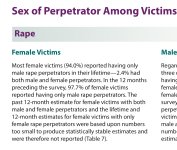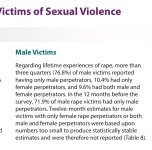lovecraft68
Bad Doggie
- Joined
- Jul 13, 2009
- Posts
- 46,364
I don't want to jump into the middle of this thing, a few posts in and my head already hurts. I do want to say I agree with you and support your argument.Only... he didn't do that. He didn't "diss" anyone.
He made observations based on his reading of the stories that they tended to feature certain patterns.
No one here has claimed that the patterns he noted aren't accurate.
So, it's okay for these patterns to exist, but to notice them is "dissing" people?
That's absurd.
Some people here are hyper defensive and like to play perpetual victim.
I notice trends in many categories, there's nothing wrong with that and like anything else, it's never all and its never none, but sometimes when you see enough of something it does tend to validate it in a statistical way.
This thread is not insulting and shouldn't be that big of a deal
But of course, it has become one.

